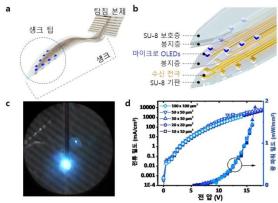Researchers at the University of Otago said they had the first direct evidence that kisspeptin neurons working simultaneously generated small, episodic hormone pulses that were crucial to normal reproductive functioning in mammals.
Study leader Professor Allan Herbison said that episodic pulses of gonadotropin-releasing hormone (GnRH) to the pituitary gland had long been known to be essential to maintain fertility, but the study had identified the cause of the GnRH pulses.
"These episodic pulses, which occur roughly every hour or so, prompt the pituitary to release two key hormones (LH and FSH) into the bloodstream also in a pulsatile manner," Herbison said in a statement.
It was thought that up to one-third of all cases of infertility in women were involved disorders in the area of brain circuitry at the center of the study.
"For example, a very common cause of infertility in women, polycystic ovarian syndrome, is caused when pulses occur too fast," Herbison said.
By Ruchi Singh
Copyright ⓒ Aju Press All rights reserved.



